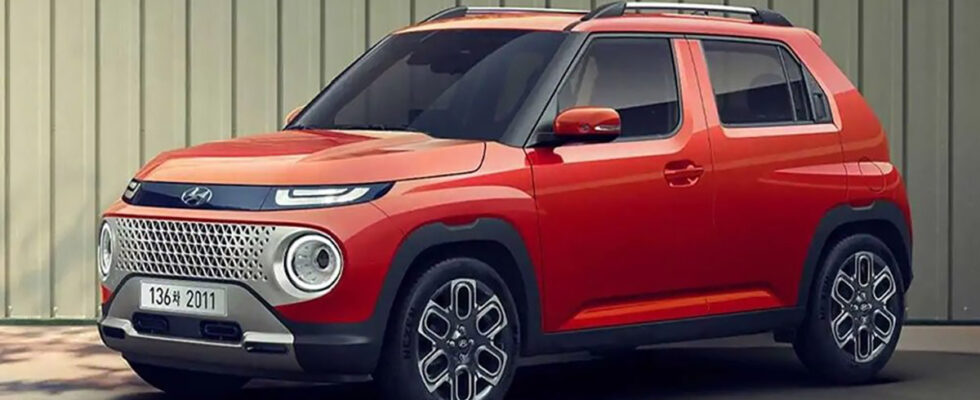The South Korean manufacturer Hyundai is preparing an electric version of its small SUV Casper for the European market, a way for it to democratize access to electric cars.
Hyundai is preparing to enrich the European electric car market with an electrified version of its small SUV, the Casper, currently offered in a thermal version in South Korea. This initiative, confirmed by Lionel French Keogh, director of Hyundai France, underlines the manufacturer’s desire to enrich its electrified offer from below. Developed in Japan, where the first images of the prototype were captured, the electric Hyundai Casper is positioned as a direct competitor to the Dacia Spring and the future Citroën ë-C3, with marketing planned in Europe at the end of 2024.
A small electric SUV for Europe
The Hyundai Casper, with its length of 3.60 meters, has already seduced the South Korean market since 2021 thanks to its small adventurer design. The announcement of its development in an electric version for Europe is arousing particular interest, particularly in France where it could benefit from government subsidies. Unlike its thermal version produced in South Korea, the electric version could be assembled in the Czech Republic alongside the electric Kona, thus optimizing logistics and production for the European market… while meeting the ecological score set up by the government to be entitled to the ecological bonus.
City characteristics
Although the precise technical details of the electric Casper remain secret for the moment, Hyundai’s objective is to offer a vehicle offering more versatility than the Dacia Spring, particularly in terms of autonomy, while maintaining a competitive price around 20 000 euros. This strategy aims to make the electric Casper accessible to a wider clientele, wishing to benefit from electric mobility without compromising on practicality and, perhaps, style.
The platform could be shared with the gasoline model, currently based on that of the Hyundai i10, but equipped with the powertrain of the Kia Ray EV which contains a 35.2 kWh battery and an 86 hp electric motor, thus promising a range of ‘approximately 204 kilometers.
Source : Autoexpress

2